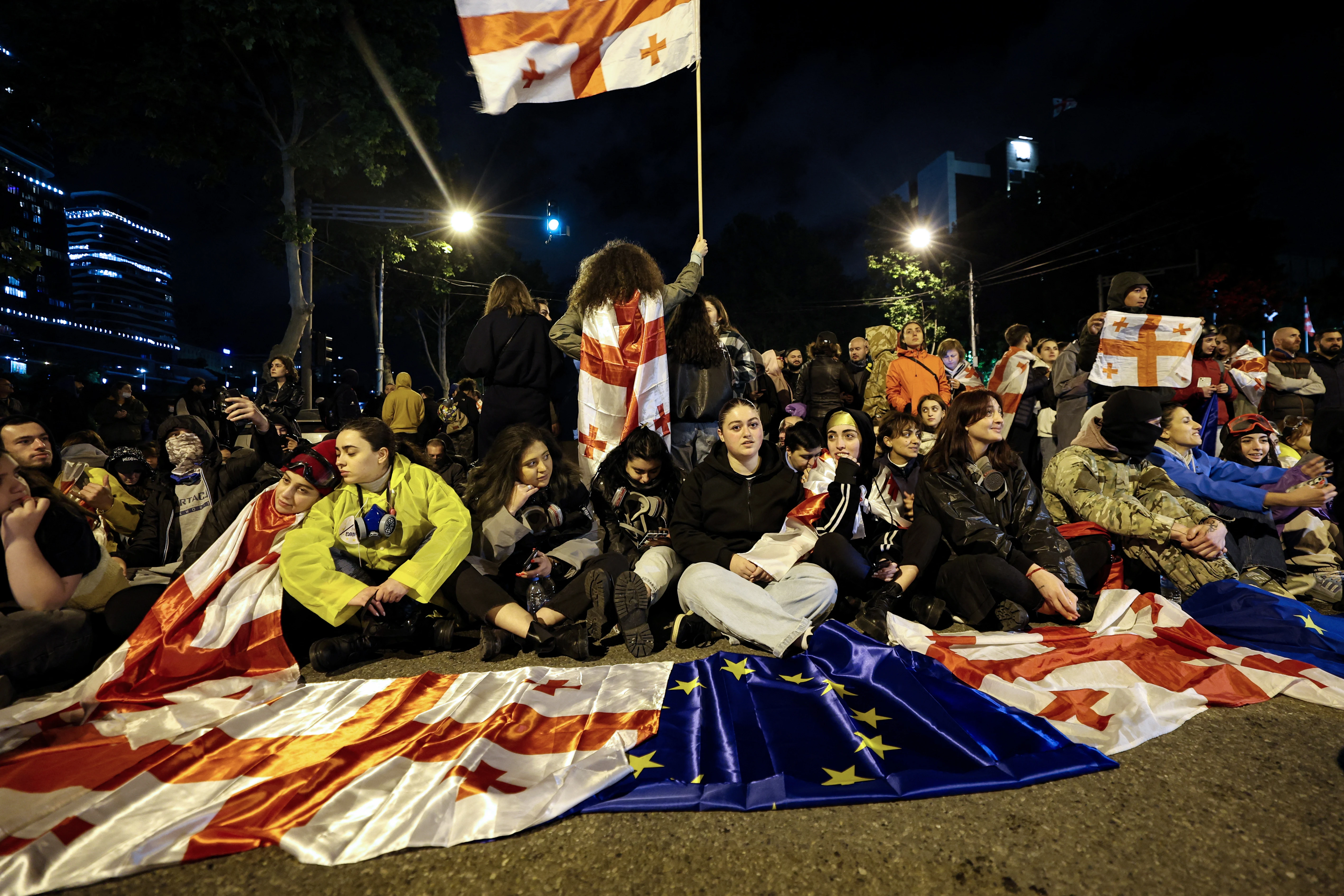Western allies denounce Georgia 'foreign influence' law

Stay tuned with 24 News HD Android App

Georgia faced a blizzard of international condemnation Wednesday as the EU, NATO and UN slammed the adoption of a controversial "foreign influence" law targeting overseas-funded NGOs.
Ruling Georgian Dream party lawmakers voted through the legislation Tuesday in defiance of protesters worried the Caucasus country is shifting away from its pro-Western course towards Russia.
The move has sparked a wave of weeks-long mass protests unprecedented in the recent history of the ex-Soviet republic, where according to opinion polls most of the population wants to join the European Union and NATO, and is staunchly anti-Kremlin.
Fresh protests are planned on Wednesday evening.
"The adoption of this law negatively impacts Georgia's progress on the EU path," EU foreign policy chief Josep Borrell said in a joint statement with the European Commission.
"We urge the Georgian authorities to withdraw the law."
The EU statement reiterated condemnation for "intimidation, threats and physical assaults on civil society representatives, political leaders and journalists" during demonstrations against the law.
A spokeswoman for the NATO military alliance said the law was a "step in the wrong direction... away from European and Euro-Atlantic integration".
"We urge Georgia to change course and respect the right to peaceful protest," said NATO spokeswoman Farah Dakhlallah.
UN human rights chief Volker Turk said in a statement he "deeply regrets" Georgia's adoption of the law.
"Authorities and lawmakers have chosen to disregard the many warnings by human rights defenders and civil society organisations," Turk said.
"The impacts on the rights to freedom of expression and association in Georgia unfortunately now risk being significant."
- 'Kremlin-style law' -
The flurry of criticism came after the United States Tuesday warned the "Kremlin-style" law would hit Washington's ties with Georgia if it was not withdrawn.
The foreign ministers of Estonia, Iceland, Latvia and Lithuania travelled on Wednesday to Georgia to express their concerns over the law's adoption.
During their press conference alongside Georgian President Salome Zurabishvili, Lithuanian Foreign Minister Gabrielius Landsbergis said that "cosmetic changes" would not make the law compatible with European standards.
Prime Minister Irakli Kobakhidze has signalled his party's readiness to consider Zurabishvili's proposed amendments to the law, should she lay them out in her veto document.
But Zurabishvili -- at loggerheads with the ruling party -- ruled out the prospect of entering "false, artificial, misleading negotiations" with Georgian Dream.
"No one should think that Georgia's president can be used for saving the face of this government," she told the news conference.
The bill requires NGOs and media outlets that receive more than 20 percent of their funding from abroad to register as bodies "pursuing the interests of a foreign power".
Critics say it mirrors repressive Russian legislation used to silence dissent, in a symbol of the ex-Soviet republic's drift closer to Russia's orbit in recent years.
Protests have sprung up against it, and scuffles have even broken out inside parliament between opposition lawmakers and members of Georgian Dream.
Georgian Dream has sought to depict the protesters as violent mobs. It insists it is committed to joining the EU, and portrays the bill as aimed at increasing the transparency of NGO funding.
